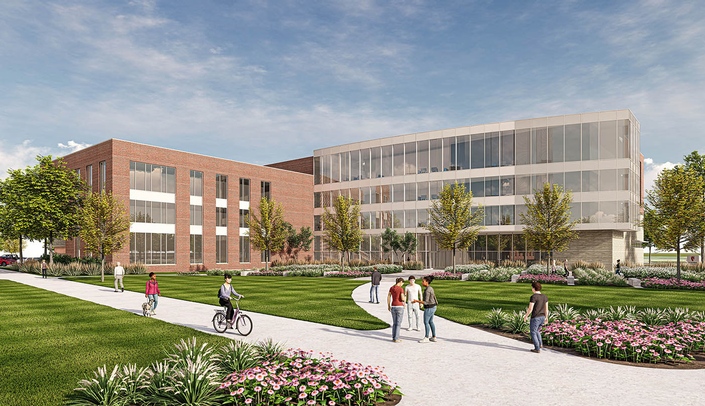The Nebraska Legislature session that concluded in April passed several bills that impact the UNMC College of Medicine.
Among the bills signed by Gov. Pete Ricketts are those that appropriate new and ongoing funding for current and expanded UNMC educational programs and to construct a new building to house those programs at the University of Nebraska at Kearney; a center focused on pancreatic cancer research and care at UNMC; and more behavioral health education resources for the state.
"We are appreciative of the legislature and Gov. Ricketts for their work during this session," Chancellor Jeffrey P. Gold, MD said. "We are excited about the initiatives that received funding and look forward to continuing to show Nebraskans that investments in UNMC and the University of Nebraska will benefit the state for generations to come."
Among the highlights from the session:
- Legislators approved $60 million from the federal American Rescue Plan Act (ARPA) for the Healthier Rural Nebraska initiative, a project that will expand UNMC health care programs at UNK. Of this funding, $50 million will be allocated to construction of a new rural health facility, and $10 million will be allocated for one-time purchase of information technology infrastructure and equipment to support iEXCEL on the UNK campus.
Also approved was ongoing funding for the project, with $500,000 scheduled for 2022-23; $9 million for 2023-24; and $15 million for 2024-25.
- The UNMC Pancreatic Cancer Center of Excellence received $15 million in one-time funding via the Health Care Cash Fund. The funding will be matched by $15 million in philanthropic support. Already, UNMC receives about $8 million in grant funding annually in the area of pancreatic cancer. More physicians and scientists will join the team aggressively pursuing new treatments and therapies. Pancreatic cancer is the fourth-leading cause of cancer deaths in Nebraska.
- The behavioral health workforce in Nebraska will grow through one-time ARPA funding and separate, ongoing funding. Legislators approved $28 million in one-time funding for students statewide in select behavioral health educational programs and expanding telebehavioral health services. In addition, lawmakers approved $2.6 million in ongoing, annual support for the Behavioral Health Education Center of Nebraska, which is administered at UNMC. The bills will allow more behavioral health professionals to be trained in Nebraska, where 95 percent of counties are behavioral health professional shortage areas.
"Many members of our campus community have worked hard this session to develop the proposals and to inform legislators and other constituents about their importance. I cannot thank them enough for their work on behalf of the med center," said Bob Bartee, vice chancellor for external relations. "I’d also like to thank the legislators for their support of these projects, which will benefit Nebraskans now and into the foreseeable future."
